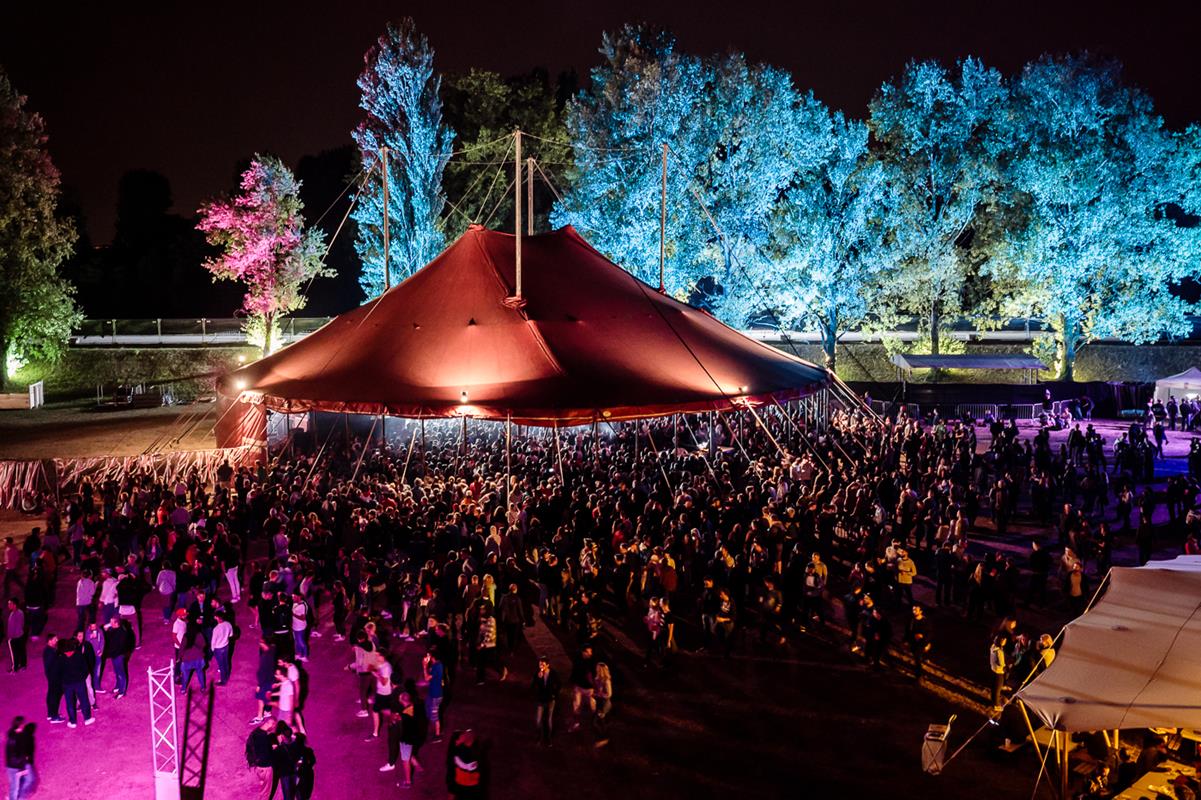Case Study
To host a massive event in a Natura 2000 site, the Grand Parc Miribel-Jonage
Contact name
DAMIEN PROST ROMAND
Institution name
Grand Parc Miribel Jonage - SEGAPAL
Region & country
FRANCE- Auvergne Rhône Alpes- Lyon
Summary
The Grand Parc Miribel Jonage is a peri-urban natural area of 2 200 hectares which serves a territory comprising approximately 1.4 million inhabitants. It belongs to the Natura 2000 network. One of its main functions is to host visitors (nearly 4 million per year), which seek different types of experiences, some simple such as swimming, picnicking or walking, others more sophisticated like participating in festivals, races or cultural events.
Since there is a growing demand for the organisation of events, could they become an additional source of funding for the Park? How can the organisation of events be made compatible with environmental objectives?

Woodstower 2018 - Photo by Brice Robert

Muddy Angel Run
Background of the project
The Grand Parc Miribel Jonage built its events policy in the 2000s by both organising events on nature topics and by hosting events organised by external associations. At the beginning of this approach, the aim was to develop attractive programs to improve the site’s image while enhancing its social and environmental protection vocation. As a result, the park was seen as a quality platform where to organise large events.
To implement this strategy, it was necessary to appoint an “Events Department”, which is responsible to study technically the requests in all their aspects:
- safety,
- logistics,
- impact on the environment,
- consistency with other uses,
- timetable,
- authorisations
Commercial services are called upon to manage the administrative and financial aspects. Other services are activated to prepare the site, validate the project according to Natura 2000 requirements or coordinate safety.
Solution and actions taken
The solutions were found in the implementation of clear and precise processes enabling the feasibility of the projects submitted to the park to be assessed.
The external organisers of events systematically fill in forms to formalise all the dimensions of the event.
Internally, other standard documents circulate between departments to ensure that no task is forgotten. Everyone must be responsible for a specific area or aspect and all must be coordinated by a project manager appointed among the park staff.
The actions taken are primarily organizational and decision-making. For the event to be accepted, it is essential that the elected representatives of the park owner, the Syndicat mixte (SYMALIM), have validated its implementation and the conditions. The company managing the park (SEGAPAL) can then work in confidence, coordinate the project with all departments.
Other institutions or parties involved
To host an event, after the park has given its approval, it is necessary to obtain authorization from the municipalities in which the event will take place and the State (Prefecture) for safety issues.
The park staff play the role of facilitator, acting as an intermediary between the event organisers, who are the ones to present the petition, and the different authorities or partners to be contacted (police, media, suppliers…)
Results
The situation is fragile because even if the organisation of events has brought economic benefits and the park’s image is good (dynamic, involving young people), the park’s elected representatives are very attentive to the feedback that some users or inhabitants of neighbouring municipalities might give, particularly regarding noise pollution.
Event organisers must pay the additional costs associated with the fact of being in a natural area; such as the acoustic impact studies, etc. and the tidy up of the area after the event.
Challenges
To implement this strategy, it was necessary to convince the political representatives of the economic interest and the positive political impact of hosting certain events. It was also necessary to reassure environmental associations, park users and residents living around the park. Moreover, the event organisers were not used to working with all the constraints linked to a Natura 2000 park and it was necessary to make them aware so that they change their culture and way of working.
Lessons learned
The management of a park like the Grand Parc Miribel Jonage is a matter of balance between environmental and socio-economic functions and in the current context of scarcity of public money, it is not easy to maintain the same level of management requirements as in the past. In order to maintain the same level of services (maintenance, species monitoring, pedagogic activities, etc.), it has become necessary to find external sources of funding.
Contact name
DAMIEN PROST ROMAND
Institution name
Grand Parc Miribel Jonage - SEGAPAL